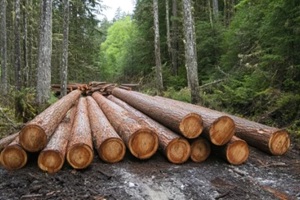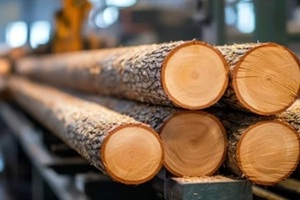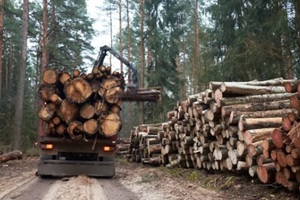
Logging is one of the most dangerous professions in the United States. With physically demanding work, heavy machinery, and unpredictable terrain, the risks are significant, and they’re a daily reality for those in the logging industry. That’s why workers’ compensation insurance is not merely a legal requirement, it’s a foundational layer of protection for companies and employees.
For logging companies operating in Virginia and beyond, having the right workers’ comp policy can have a significant impact. Here’s what logging company owners and operators need to know.
The Role of Workers’ Compensation in Logging
Workers’ compensation, often referred to as “workers’ comp,” provides benefits to employees who suffer job-related injuries or illnesses. The benefits for individuals typically include:
- Medical treatment costs
- Lost wages during recovery
- Disability payments (temporary or permanent)
- Rehabilitation services
- Death benefits for surviving family members
For businesses, workers’ compensation also reduces legal exposure. When a workers’ comp policy is in place, employees generally cannot sue their employer for work-related injuries. That’s especially important in logging, which has a higher likelihood of injury than many other industries.
Why Logging Companies Face Higher Risk
Logging consistently ranks among the top five most dangerous jobs in the United States, according to the Bureau of Labor Statistics. Unlike other industries, these workers encounter serious hazards every day, including:
- Chainsaw injuries
- Falling trees and branches
- Slips and falls on uneven ground
- Heavy machinery accidents
- Equipment rollovers
- Weather-related exposure (heat, cold, lightning)
Many logging operations are situated in remote locations, where access to emergency care may be limited. These conditions increase both the likelihood and severity of workplace injuries, making strong insurance coverage even more important.
Legal Requirements in Virginia
In Virginia, the law requires any business with three or more employees to carry workers’ compensation insurance. This includes full-time, part-time, and seasonal workers. Subcontractors and temporary laborers may also need to be counted, depending on how they’re classified under Virginia’s workers’ compensation rules.
However, even sole proprietors or smaller crews that fall below the threshold often choose to carry coverage voluntarily for their own protection. In an industry where injuries can lead to six-figure claims, it’s a smart risk management move.
What Workers’ Comp Covers for Logging Companies
A well-designed workers’ comp policy that is customized to the logging industry can protect your business from the financial fallout of workplace injuries. Coverage typically includes:

- Immediate medical care for injuries sustained on the job
- Partial wage replacement during recovery time
- Compensation for long-term disabilities that affect a worker’s ability to return to work
- Funeral and death benefits in fatal cases
- Vocational retraining if the employee cannot return to logging work
These protections not only support injured employees; they also help stabilize your business after an incident, reducing downtime and preserving morale among the crew.
Partner with an Insurance Provider That Knows Logging
Not all insurance providers understand the risks specific to logging operations. Choosing a partner with experience in the industry makes a difference in everything from policy design to claims handling.
A provider who knows logging can offer:
- Customized coverage based on your equipment, job sites, and crew size
- Accurate risk assessment to avoid overpaying for unnecessary coverage
- Claims support that reflects the realities of logging injuries and recovery timelines
- Ongoing guidance as your company grows or changes
When the stakes are this high, working with a team that understands your business can provide assurance and a better return on your insurance investment.
Steps to Set Up the Right Coverage
Getting started with workers’ compensation doesn’t have to be complicated. Here are the basic steps to obtaining appropriate and satisfactory coverage:
- Review your workforce: Count all employees, including part-time or seasonal workers and subcontractors.
- Identify your job site hazards: Look at the equipment used, terrain, and how remote your locations are.
- Work with a specialized insurance provider: Choose one that is familiar with logging operations.
- Compare policy options and rates: Get coverage that balances protection and affordability.
- Maintain and review your policy annually: Keep your coverage up to date with business growth and other changes.
A Partner You Can Trust: Burton & Company

For logging companies, the right workers’ compensation coverage could be the difference between a temporary setback and a major financial loss. That’s why it’s important to work with an insurance provider that understands the specific risks of your industry.
Burton & Company has been helping logging businesses across Virginia protect their teams and their bottom lines for decades. We know the terrain you operate in, both literally and figuratively, and we’re committed to providing straightforward advice, competitive coverage options, and responsive support when it matters most.
If you’re ready to secure dependable workers’ comp coverage that’s built for your logging operation, contact Burton & Company today. Request a quote online or give us a call at (888) 652-1325 to speak with one of our experienced insurance professionals. Let us help you protect what matters most.

